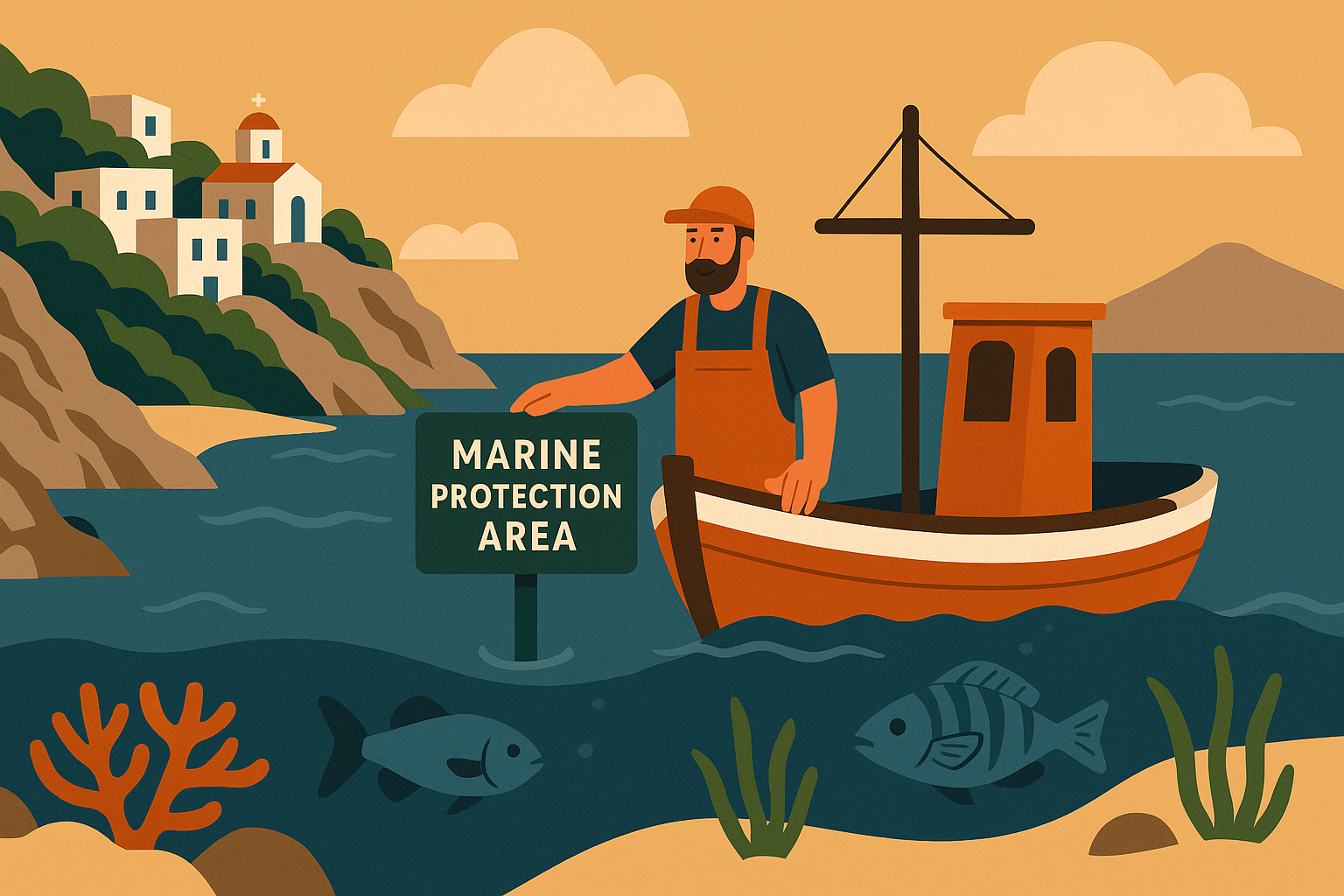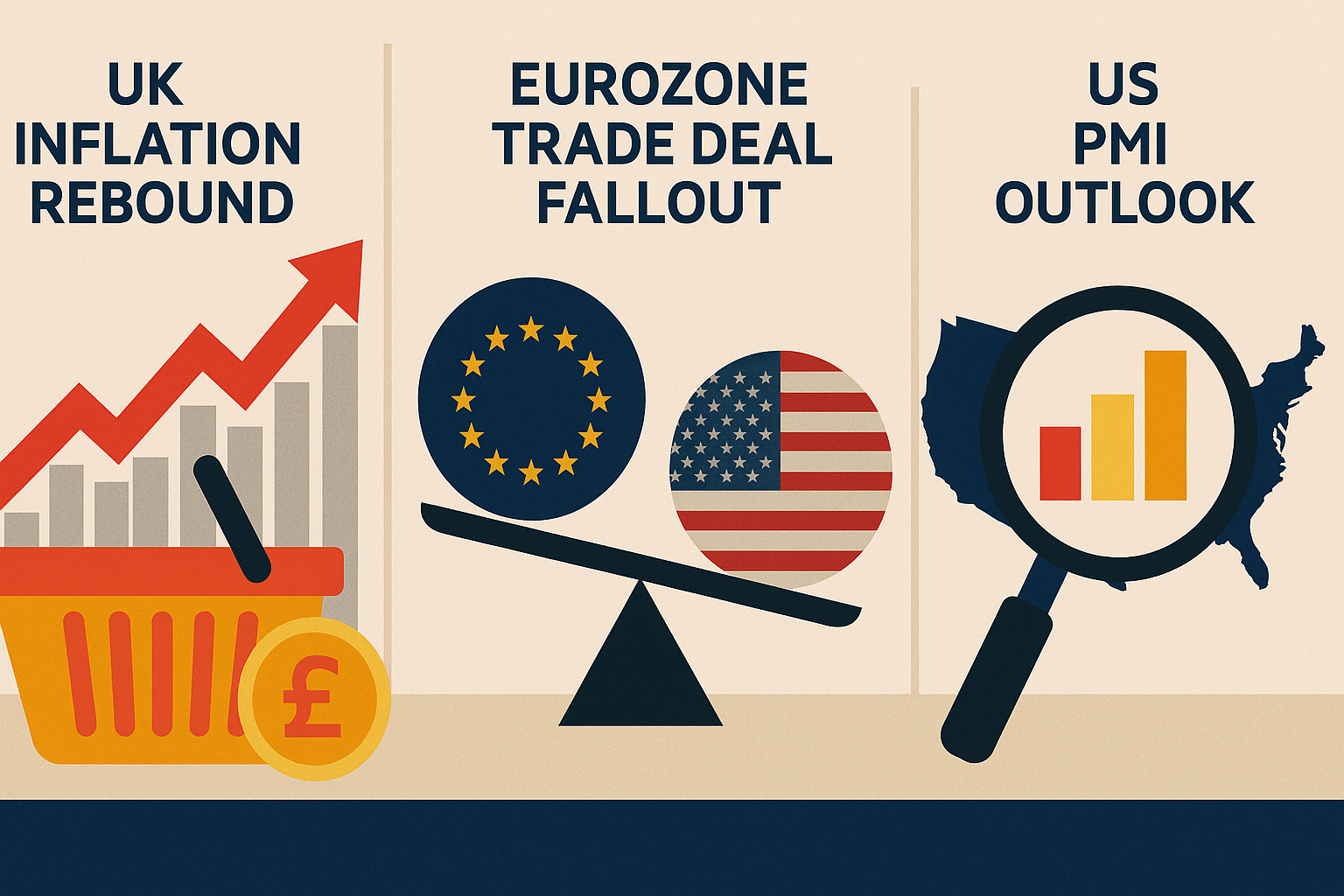On the Greek island of Amorgos, fishermen are taking matters into their own hands to protect the sea that has sustained their livelihoods for generations. Confronted with declining fish stocks, plastic pollution, and warming waters, the island’s fishing community has devised a pioneering conservation plan that could serve as a model for marine protection across the Mediterranean.
A Sea Under Pressure
Local fisherman Yannis Psakis recalls the dire state of Amorgos’s beaches during early cleanup efforts: “I couldn’t even see the beach through the garbage,” he said, pointing to plastic bottles, shoes, and even discarded fridges that had replaced once-abundant marine life. Over the past decade, the Aegean has experienced a more than 50 percent drop in fish stocks, with lobster populations declining by over 80 percent.
Amorgos’s challenges mirror a wider Mediterranean crisis, where overfishing, climate change, and marine degradation threaten ecosystems and traditional livelihoods.
Greece’s National Marine Push
In July, the Greek government announced the creation of two large marine parks — in the Ionian and southern Aegean Seas — designed to place more than 35 percent of the country’s waters under formal protection. Officials described the move as a “historic milestone” in line with the EU’s biodiversity target of safeguarding 30 percent of marine areas by 2030.
Yet conservation groups warn of weak enforcement. “Greece has a poor record when it comes to marine conservation,” said Dimitris Karavellas, head of WWF Greece. Critics worry the new zones could become “paper parks” unless backed by effective management.
A Local Plan: Amorgorama
Rather than wait for national enforcement, Amorgos’s 44-member fishers’ association created its own plan in 2014, later branded Amorgorama. It includes:
- A two-month annual ban on fishing to allow reproduction.
- Three protected zones to safeguard seagrass meadows and habitats.
- Transition to more sustainable fishing equipment.
- A voluntary cleanup program during the off-season.
Though initially met with skepticism, the plan gained support after scientific validation. A 2022 study by the Agricultural University of Athens confirmed the ecological importance of the proposed zones, particularly for seagrass meadows that serve as breeding grounds.
The government decree formalizing Amorgorama is expected to be signed soon, with implementation scheduled for April 2026. Monitoring will include GPS tracking of vessels and a five-year evaluation period.
Balancing Tradition and Survival
For Amorgos’s fishing families, the initiative is as much about cultural survival as environmental recovery. “Marine protected areas are the only way forward,” said Michalis Croesmann, president of the fishers’ association. “If we want our children to have a future in fishing, something has to change.”
Still, economic pressures remain intense. Psakis admits that traditional fishing no longer provides a sustainable income: “You used to build a new house every two years. Now you can’t even feed your family.” His own son is training as a commercial captain, a decision Psakis supports.
A Model for the Mediterranean?
Supported by the Cyclades Preservation Fund and the Blue Marine Foundation, Amorgorama highlights the power of grassroots initiatives. Conservationist Angela Lazou believes it could inspire other communities: “Amorgos shows how marine protection works when those who depend on the sea lead the effort.”
But the fishers know success depends on broader adoption and legal enforcement. “If this doesn’t become law, nothing changes,” said Psakis, warning that without regulation, boats from neighboring islands could undermine local sacrifices.
As Greece steps up its national marine commitments, Amorgos offers a small but determined example of how local leadership may hold the key to saving the Mediterranean’s fragile ecosystems.








